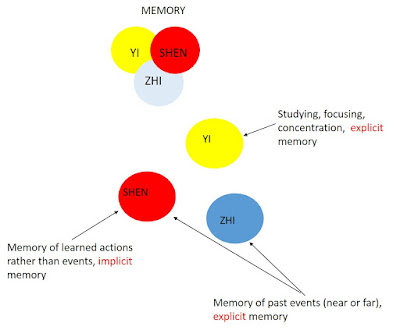My favourite points - no. 2
LU-3 Tianfu (3 cun below axillary fold)
Window of Heaven point. These points regulate the ascending and descending of Qi from the body to and from the head: they do so in the crucial neck area. Therefore, they can both subdue rebellious Qi and promote the ascending of clear Qi to the head.
On a psychic level, LU-3 action in regulating the ascending and descending of Qi to and from the head has a mental-emotional effect. For example, insomnia is due to Qi ascending too much to the head (or not descending from it) while somnolence and forgetfulness are due to clear Qi not ascending to the head. The “Explanation of the Acupuncture Points” (1642) says that LU-3 can make Qi rise to treat forgetfulness, sadness and weeping due to Qi not rising to head. Forgetfulness is an important indication for this point: this is forgetfulness due to clear Qi not rising to the head. According to the “Explanation of the Acupuncture Points”, this point treats forgetfulness by stimulating the ascending of Qi of both Lungs and Heart.
The mention of weeping in this ancient text is interesting. It means that this point treats afflictions of the Lungs from sadness and grief leading to weeping.
Finally, “talking to ghosts” features heavily in this point's indications. Generally speaking, when ancient books mention such symptoms as talking or seeing ghosts among the indications of a point, it means that the point is indicated for relatively serious mental-emotional problems and, in particular, when the Mind is obstructed. Obstruction of the Mind can potentially cause serious mental problems such as manic-depression or psychosis. Again, this point can open the Mind's orifices, i.e. de-obstruct the Mind by regulating the ascending and descending of Qi to and from the head: it opens the Mind's orifices by promoting the descending of turbid Qi from the head and the ascending of clear Qi to the head (which, as we have seen above, is a general function of the Window of Heaven points).
Window of Heaven point. These points regulate the ascending and descending of Qi from the body to and from the head: they do so in the crucial neck area. Therefore, they can both subdue rebellious Qi and promote the ascending of clear Qi to the head.
On a psychic level, LU-3 action in regulating the ascending and descending of Qi to and from the head has a mental-emotional effect. For example, insomnia is due to Qi ascending too much to the head (or not descending from it) while somnolence and forgetfulness are due to clear Qi not ascending to the head. The “Explanation of the Acupuncture Points” (1642) says that LU-3 can make Qi rise to treat forgetfulness, sadness and weeping due to Qi not rising to head. Forgetfulness is an important indication for this point: this is forgetfulness due to clear Qi not rising to the head. According to the “Explanation of the Acupuncture Points”, this point treats forgetfulness by stimulating the ascending of Qi of both Lungs and Heart.
The mention of weeping in this ancient text is interesting. It means that this point treats afflictions of the Lungs from sadness and grief leading to weeping.
Finally, “talking to ghosts” features heavily in this point's indications. Generally speaking, when ancient books mention such symptoms as talking or seeing ghosts among the indications of a point, it means that the point is indicated for relatively serious mental-emotional problems and, in particular, when the Mind is obstructed. Obstruction of the Mind can potentially cause serious mental problems such as manic-depression or psychosis. Again, this point can open the Mind's orifices, i.e. de-obstruct the Mind by regulating the ascending and descending of Qi to and from the head: it opens the Mind's orifices by promoting the descending of turbid Qi from the head and the ascending of clear Qi to the head (which, as we have seen above, is a general function of the Window of Heaven points).

Comments
Post a Comment